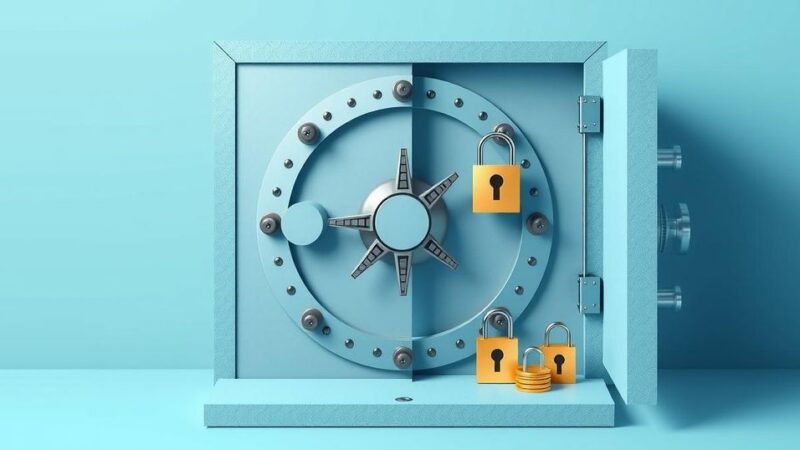The 2025 budget proposal in Ghana seeks to amend the Minerals Income Investment Fund (MIIF) Act by redirecting 80% of mineral royalties to the Consolidated Fund for infrastructure projects. This decision raises concerns regarding the long-term sustainability of Ghana’s mineral resources and undermines MIIF’s role as a Sovereign Wealth Fund. Historical examples from other countries illustrate the risks associated with failing to invest resource wealth wisely, emphasizing the need for Ghana to prioritize sustainable economic strategies.
The 2025 Budget Statement and Economic Policy of Ghana proposes an amendment to the Minerals Income Investment Fund (MIIF) Act, 2018, which will allocate 80% of mineral royalties to the Consolidated Fund. This significant policy alteration signifies a departure from MIIF’s original purpose of serving as a Sovereign Wealth Fund, which was intended to manage mineral royalties for long-term economic stability. This shift raises concerns regarding the sustainability of Ghana’s mineral resources and long-term fiscal health.
The proposed amendment threatens MIIF’s ability to invest in high-yield assets such as equity in mining companies and development infrastructure, effectively diminishing its capital for meaningful investments. Furthermore, existing legislation mandates that 20% of mineral royalties must support local communities and regulatory bodies through the Minerals Development Fund. Consequently, the capability of MIIF to strategically invest in both national and international ventures may be compromised, risking Ghana’s financial future.
Sovereign Wealth Funds (SWFs), as defined by the International Monetary Fund (IMF), are investment funds owned and managed by the government, created to achieve financial objectives and ensure economic stability. Such funds are typically composed of surplus revenues from natural resources and are designed to provide long-term financial returns. Effective management of SWFs is essential for supporting national development and preserving wealth for future generations.
The government’s initiative to channel 80% of MIIF funds for immediate budgetary concerns prioritizes short-term infrastructure needs over sustainable economic growth. While infrastructure investment remains critical, this decision undermines MIIF’s function, depriving it of the capability to yield long-lasting financial benefits. Experiences from countries like Norway and Bahrain demonstrate the advantages of managing resource wealth strategically, to ensure continued economic prosperity even amidst depleting resources.
Ghana already possesses significant stakes in various mining ventures, with MIIF investing in assets such as Bibiani Mensin Gold and significant shares in Electrochem. By managing MIIF responsibly, it could grow to a $10 billion Sovereign Wealth Fund, generating substantial funds to support government initiatives while ensuring sustainable development.
The potential reduction in MIIF’s investment capacity could deter foreign investments and negatively impact Ghana’s mining sector. By limiting available capital, MIIF risks losing opportunities for local mining development and may weaken the bargaining position against multinational mining corporations.
Historical precedents, such as the Netherlands and its experience with Dutch Disease, serve as cautionary tales. Effective resource management must focus on long-term strategies to avoid economic instability caused by reliance on fluctuating revenues. Norway’s Government Pension Fund Global exemplifies best practices in preserving wealth through diversified investments and limiting government withdrawals, whereas Bahrain emphasizes long-term investment over direct expenditures.
Instead of the proposed 80% reallocation, Ghana could implement a balanced revenue allocation model that reserves part of the revenues for investments while addressing immediate infrastructure needs. Initiatives such as issuing resource-backed infrastructure bonds can safeguard MIIF’s capital and attract foreign investment. Additionally, expanding MIIF’s investment portfolio to include critical minerals can enhance its resiliency and potential returns.
As Ghana navigates its mineral revenue management strategy, the proposed transfer of 80% of MIIF funds poses risks to financial security. Learning from historical examples and applying best practices in sovereign wealth fund management is imperative. By preserving MIIF’s original purpose and focusing on long-term investments, Ghana can create enduring wealth from its mineral resources, benefiting generations to come.
In conclusion, the proposed amendment to the Minerals Income Investment Fund threatens Ghana’s long-term economic stability by prioritizing short-term fiscal needs over sustainable growth. Historical precedents underscore the importance of a well-managed sovereign wealth fund, as evidenced by Norway and Bahrain. For Ghana to secure its economic future, it must maintain MIIF’s integrity, invest prudently, and balance immediate requirements with strategies that foster durable wealth creation for its citizens.
Original Source: citinewsroom.com






